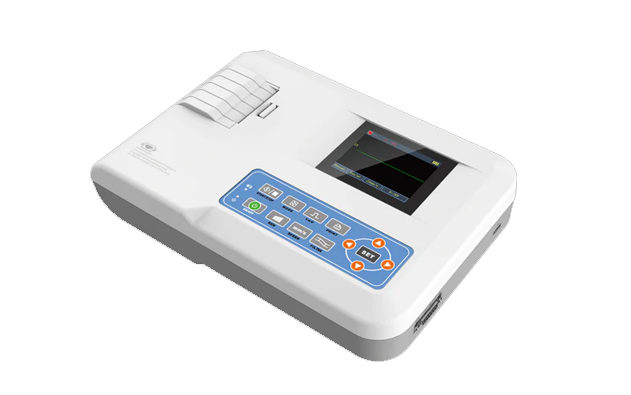ECG
An electrocardiogram (EKG/ECG) uses temporary electrodes on the chest and limbs to monitor, track and document the heart’s electrical activity (which controls the heartbeats) for diagnostic purposes.
It records the electrical signal from the heart to check for different heart diseases.
It doesn’t take long and doesn’t cause pain, but an electrocardiogram test can tell your healthcare provider if you’ve had a recent / past heart attack, heart failure or heart damage. It can also tell them if your heart rhythm isn’t normal or how well your pacemaker is working.
We are equipped with advanced 12 channel ECG which facilitates recording of ECG waveform from all leads simultaneously and reduces the time of examination.
ECHO
An echocardiogram is an ultrasound test that checks the structure and function of the heart.
An echo can diagnose a range of conditions including valvular heart diseases, cardiomyopathy and coronary heart disease.
There are several types of echo tests, including transthoracic and transesophageal.
Doppler is combined with Echocardiogram to evaluate blood flow velocity, severity of the valve diseases etc.
We are doing transthoracic Echocardiogram (2D Echo, Doppler and M mode) for routine diagnostic services and screening examinations.














